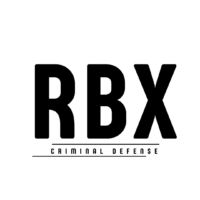What is a Criminal Record?
If law enforcement arrested you, charged you with a crime, or convicted you of a crime, there is likely a “criminal record” on file with the California Department of Justice.
Consequences of a Criminal Conviction
A criminal conviction can prevent you from obtaining employment, a professional license, or from holding public office.
Changing Your Criminal Record
Typically modifying your criminal record requires filing a motion in the court where the conviction occurred. However, some modifications occur automatically…
If a defendant successfully completed Military Diversion or Mental Health Diversion, the judge dismisses the charges. The Court deems that the arrest never occurred and no record of arrest can be used to deny any employment, benefit, license, or certificate. (Penal Code 1001.80(i); Penal Code 1001.36(h))
Starting July 1, 2022, the DOJ began reviewing state criminal justice databases and identify person with conviction who qualify for automatic conviction record relief. A person qualifies for automatic DOJ relief if they meet five requirements:
- The person is not required to register pursuant to the Sex Offender Registration Act.
- The person does not have an active record for local, state, or federal supervision in the Supervised Release File.
- The person is not currently serving a sentence for an offense and there is no indication of pending criminal charges.
- There is no indication that the conviction resulted in a sentence of incarceration in the state prison.
- The conviction occurred on or after January 1, 1973, and meets either of the following criteria:
- The judge sentenced the defendant to probation and the defendant completed their term of probation without revocation.
- The judge convicted the defendant of an infraction or misdemeanor without probation, the defendant completed their sentence, and one calendar year has passed since the date of judgment.
Below are ways to modify your criminal record.
Expunge Your Conviction
The Court can “expunge” a conviction if:
- The defendant successfully completed probation, OR
- One year has passed since the defendant finished serving time.
Seal an Arrest Record
The defendant can ask the Court to seal their arrest record if law enforcement arrested them but they were never charged with a crime. A defendant who successfully completes a PC 1000 drug diversion program can also ask the court to seal their arrest. Once the Court orders the sealing of an arrest, only criminal justice agencies or persons with a Court order can access the records.
Change a Guilty Plea or Verdict
- Request to withdraw a guilty plea within 6 months from entering the plea. (Penal Code section 1018)
- Appeal a guilty verdict by filing a notice of appeal within 30 days of the verdict or order. (Penal Code section 1466)
- Request a new trial before you are sentenced. (Penal Code section 1181)
End Probation Early
(Penal Code section 1203.3)
The court will terminate probation if the defendant demonstrates good conduct and reform AND if termination of probation is in the interests of justice.
Reduce a Felony to a Misdemeanor
(Penal Code Section 17(b))
A “wobbler” is an offense that can be a misdemeanor or a felony. The defendant can ask the court to reduce a wobbler from a felony to a misdemeanor during the case, or after a conviction.
Restore Your Gun Rights
(Penal Code section 29805)
- Misdemeanor conviction – a person’s gun rights restore automatically 10 years after the conviction.
- Felony conviction – the governor must grant a pardon or the judge must reduce the conviction to a misdemeanor.
RBX Law is licensed to seal and modify criminal records in California.

